Acne scar treatments in Singapore
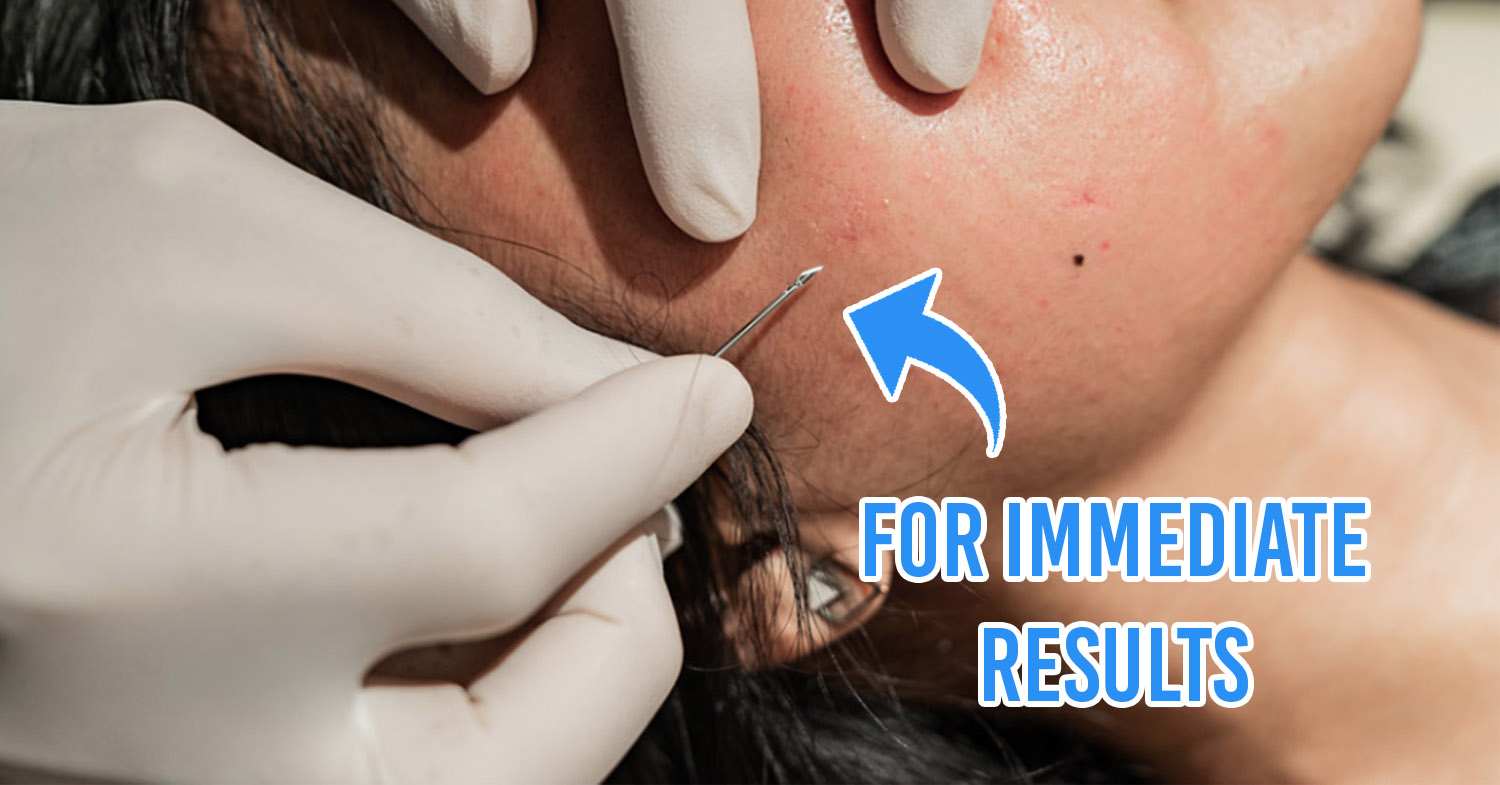
Search the words, “acne scar removal,” and you’ll instantly be made aware that a ton of treatments exist for this skin condition. Often times though, there can be a little too much information cluttered with technical jargon that can be confusing.
Here, we get to the bottom of the most common treatments, so you’ll know exactly what takes place when gunning for flawless skin. But first, a little background on acne scars:
Types of acne scars
One way to know what treatment will work best for you is by identifying what kind of acne scars you have. Here’s a breakdown of the most common types:
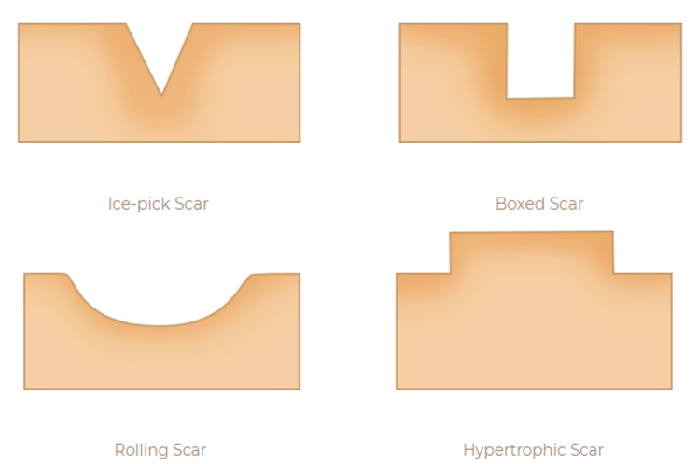
Image adapted from: The Clifford Clinic
- Ice-pick scars: Deep dot-like scars that are pitted.
- Rolling scars: Wavy in appearance, similar to a bumpy road, usually with sloping edges.
- Boxcar scars: Similar to rolling scars, but with more obvious, defined edges.
- Hypertrophic scars: Scars that protrude from the skin.
There isn’t a one-size-fits-all solution for each type of acne scar, since it differs from person to person. This is why there’s a variety of different acne scar removal treatments available, all of which need to be tailored to your scar type and severity of scars.
Most treatments work by stimulating collagen production within the skin that restores its original – and smoother – state.
1. Laser treatments – to speed up natural healing
Lasers can be used to either zap off blemishes on the skin, or heat blood vessels to stimulate collagen growth. New cells will then grow to fill up the gaps and push up acne scar depressions. And tadah – new, rejuvenated skin.
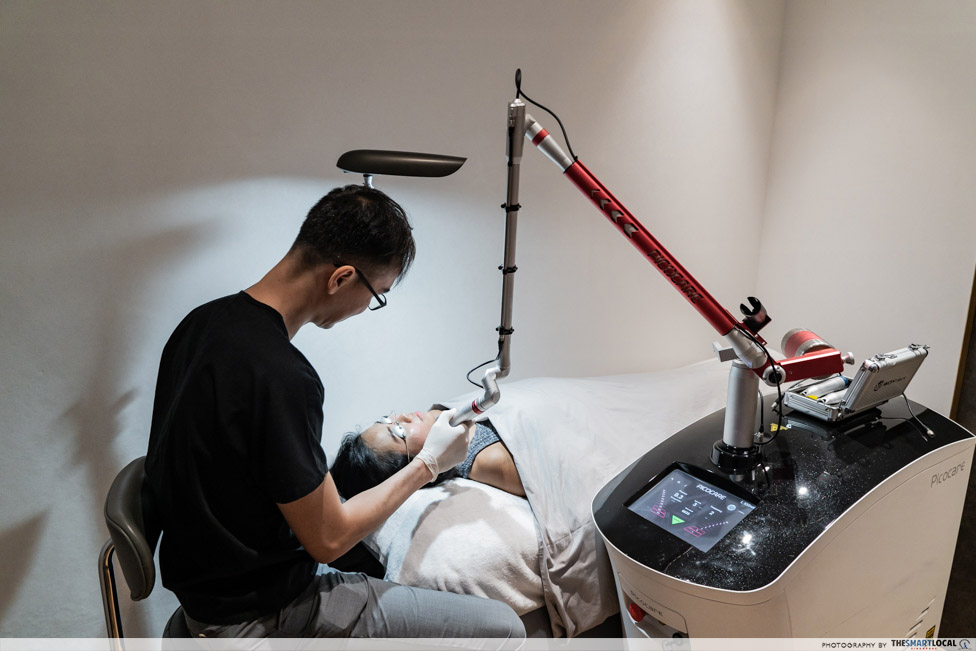
Most modern lasers can target specific areas, so healthy skin cells won’t be affected. These treatments are also much less painful to endure.
Here are 2 types of lasers commonly used in Singapore:
- PICO MLA: Can be used to correct enlarged pores, bumpy skin texture, wrinkles and acne scars
- Edge Fractional CO2: More suitable for acne scars on larger areas like your cheeks and forehead.
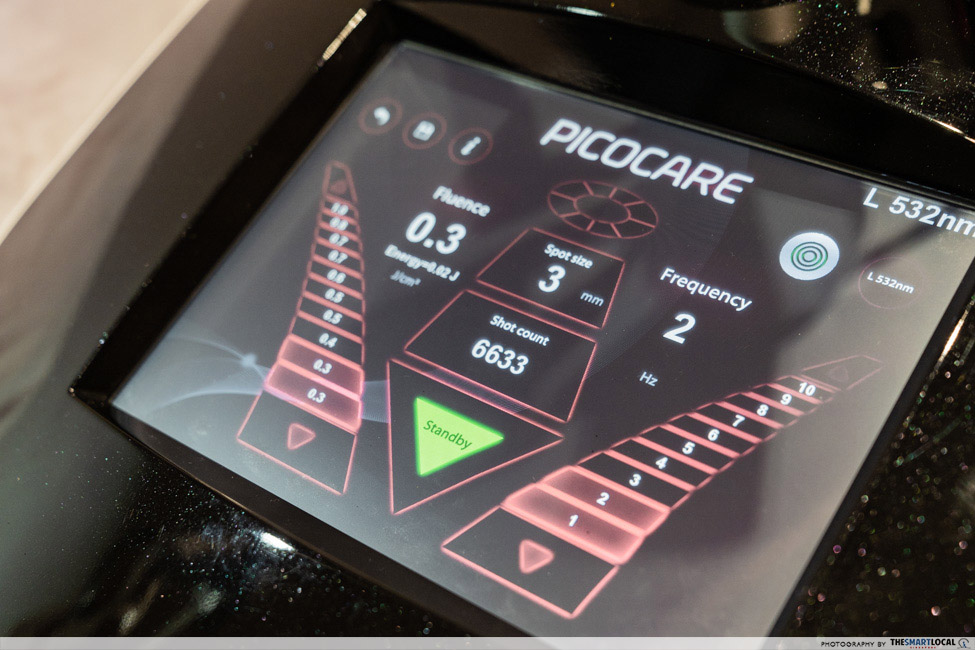
Doctors can select specific frequencies to suit your skin with PICO MLA Lasers
Downtime: Less than 1 week.
Visible results: After 1 session.
2. Radiofrequency microneedling – to puncture and “repair” scar tissue
Microneedling is a process that uses fine needles to “wound” your skin, triggering the production of new collagen cells. When you add radiofrequency into the equation, you get small doses of energy delivered underneath the dermis to repair the skin from within.
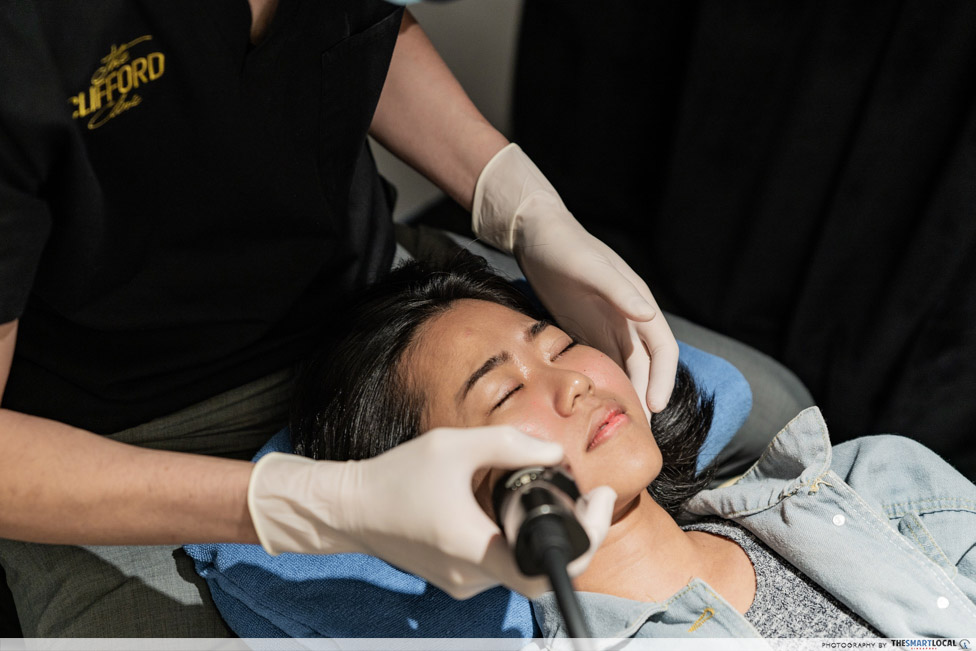
This treatment usually targets deeper acne scars, and also has benefits like skin lifting, and correcting wrinkles and fine lines.
Here’s a brief explanation of different microneedling methods:
- Infini: For very deep acne scars like ice pick scars.
- Secret RF: Similar to Infini but uses a different type of radiofrequency. Some acne scars may respond better to it.
- Rejuran S: Strengthens the skin’s ability to regenerate. Best used for sunken acne scars.
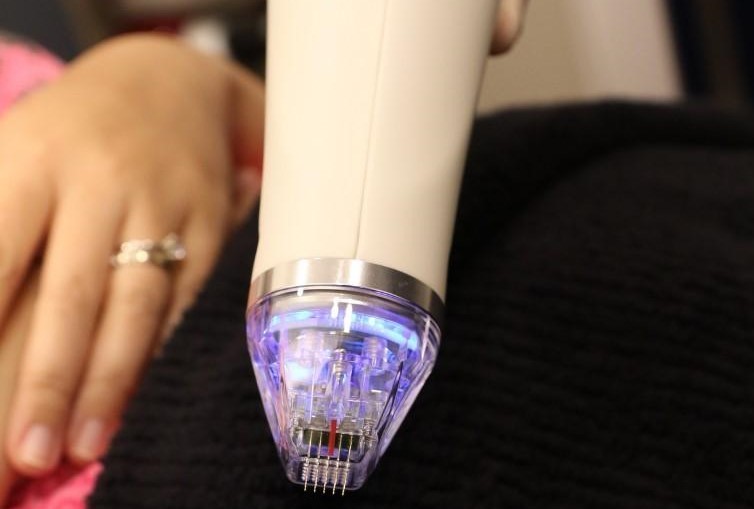
Secret RF has a 64-pin handpiece for a fast treatment process that covers larger areas like the cheeks
Image credit: The Clifford Clinic
Downtime: 3-5 days of scabbing.
Visible results: Skin’s condition will continue to improve over the next month.
3. Subcision – for more serious acne scars
A slightly more invasive acne scar treatment, Subcision requires longer downtime, but can achieve immediate results. During the procedure, a needle is inserted into the skin to detach old collagen bands to create a buffer layer for collagen regeneration under the skin.
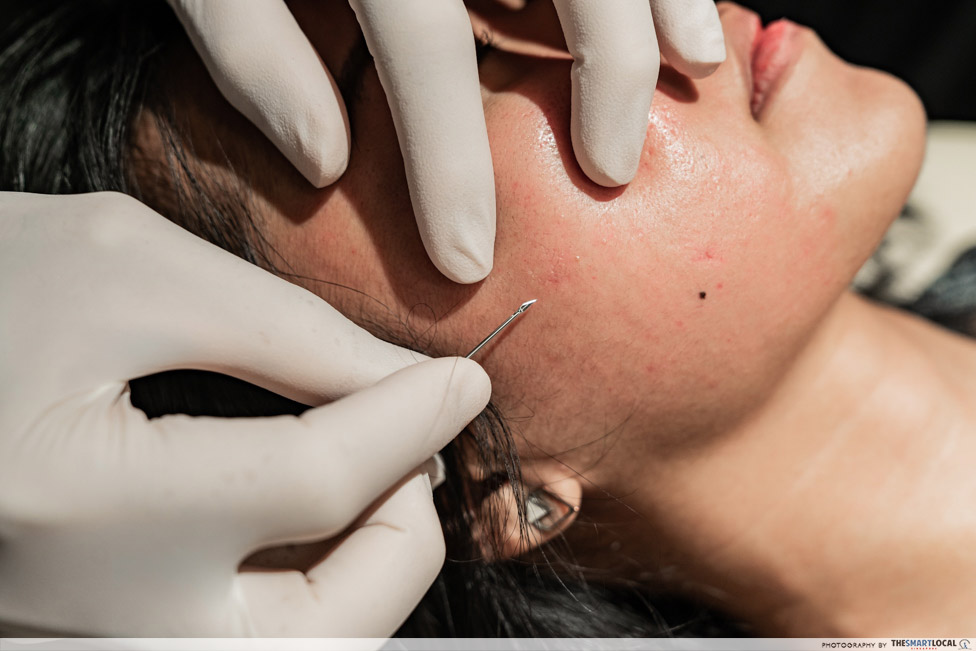
Downtime: 1 week of slight bruising
Visible results: Immediate results and continued improvement in complexion to be expected over the next 2-3 weeks.
4. Chemical reconstruction – uses chemicals to remove acne scars
TCA Cross is a type of chemical peel where, instead of removing the top layer of your skin, it’s applied directly on acne scars. It’s a more targeted alternative that uses highly concentrated acid to trigger the growth of collagen cells.
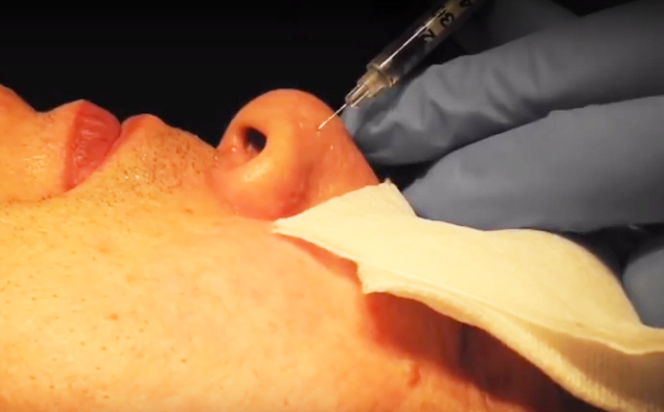
The solution is deposited directly on the scar’s surface via a fine needle
Image adapted from: The Clifford Clinic
Suitable for mild to moderate scar types, TCA Cross is usually used with other treatments like lasers to get the best results.
Downtime: 3-4 days of redness over treated areas.
Visible results: After 2-3 sessions. Acne scar appearance will continue to improve for several months after the procedure.
5. Dermal fillers – filling depressions of acne scars
Particularly effective for visually jarring acne scars like rolling and boxcar scars, dermal fillers are used to restore lost volume in the skin. It’s made up of a gel that mimics collagen, and is injected into the skin to fill up the holes that scars have left.
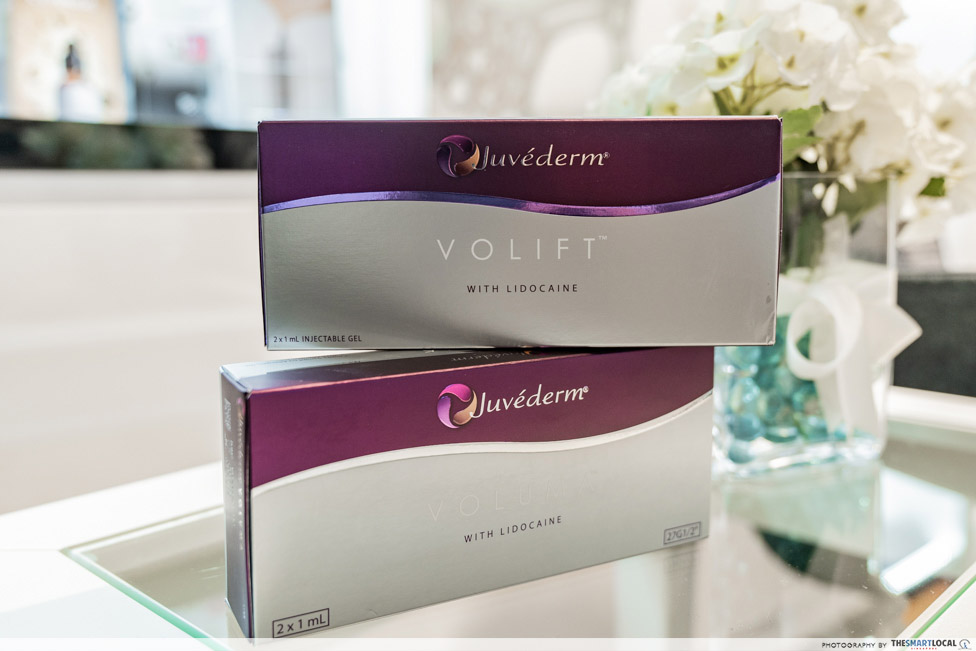
The results are immediate, and the skin will absorb this gel over time, and continuously improve in elasticity and firmness. The plus point about this treatment is that it lasts for up to 4 years while looking natural.
Dermals fillers work best on areas like the cheeks, chin and temples, and it can even be used for nose contouring too.
Downtime: Slight inflammation is possible, but only needs 1-2 days to subside.
Visible results: Immediately
Our experience with acne scar treatments
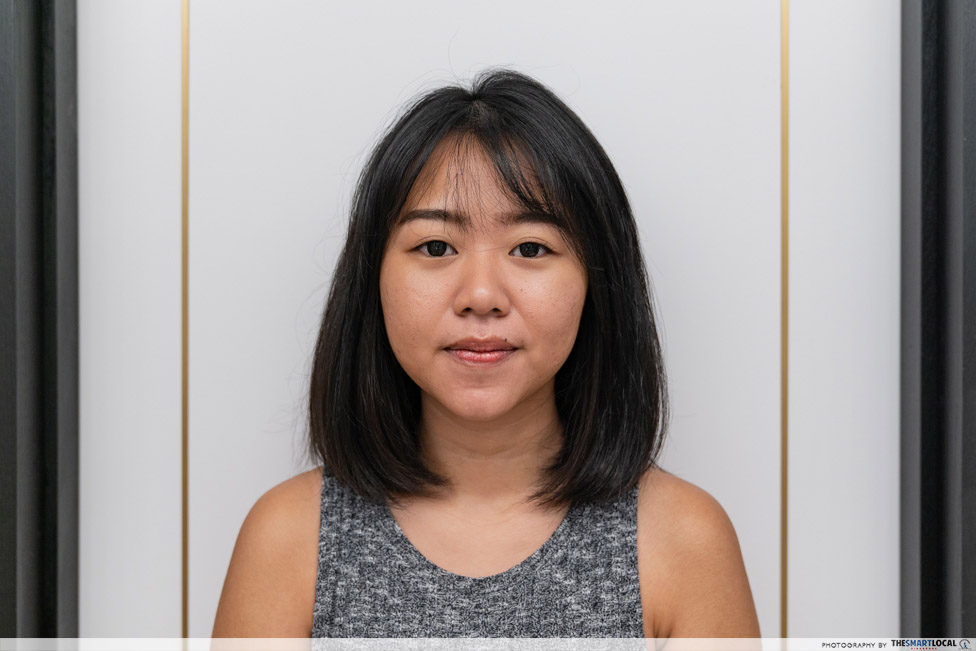
Since seeing is believing, we sent fellow colleague Elaine to try them out for herself. Having struggled with ice pick and rolling scars for the past 6 years, she underwent 3 different treatments at The Clifford Clinic to improve her skin’s appearance.
The entire duration took about 4 months, with a 1 month cool-off period in between each session for her skin to heal completely. Here’s how it went:
Consultation
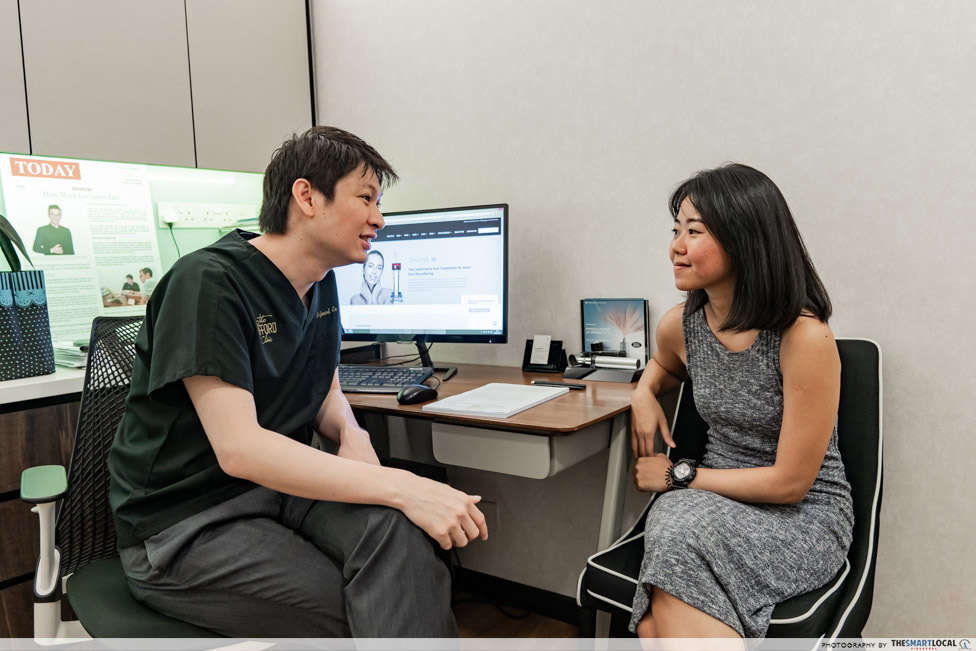
Before each consultation, the staff will lead you to a room where you can wash your face so that the doctors can thoroughly examine your skin. Medical Director Dr Gerard Ee discussed suitable treatments for her condition, before explaining the process and downtime needed for each one.
Treatment
Dr Gerard recommended Infini, Secret RF, and Pico MLA as suitable treatments for Elaine’s relatively mild skin condition. Before each session, clinic assistants applied 2 layers of numbing cream that each took about 30 minutes to settle in. For patients who cannot tahan pain, you can also opt for local anesthesia injections.

Pico MLA treatment
Both Infini and Secret RF microneedling processes were similar and each one targeted different types of scars: the machine punctures the skin much like a stapler to deliver energy into its layers. Pico MLA however, may be more uncomfortable for those with low pain tolerance. The laser sweeps over problem areas like scar clusters, for a slightly longer continuous duration.
Throughout the treatment, Dr Gerard walked her through the process and explained each step. The treatment itself only took about 15 minutes each for the cheeks, to the jaw and chin.
Recovery and results
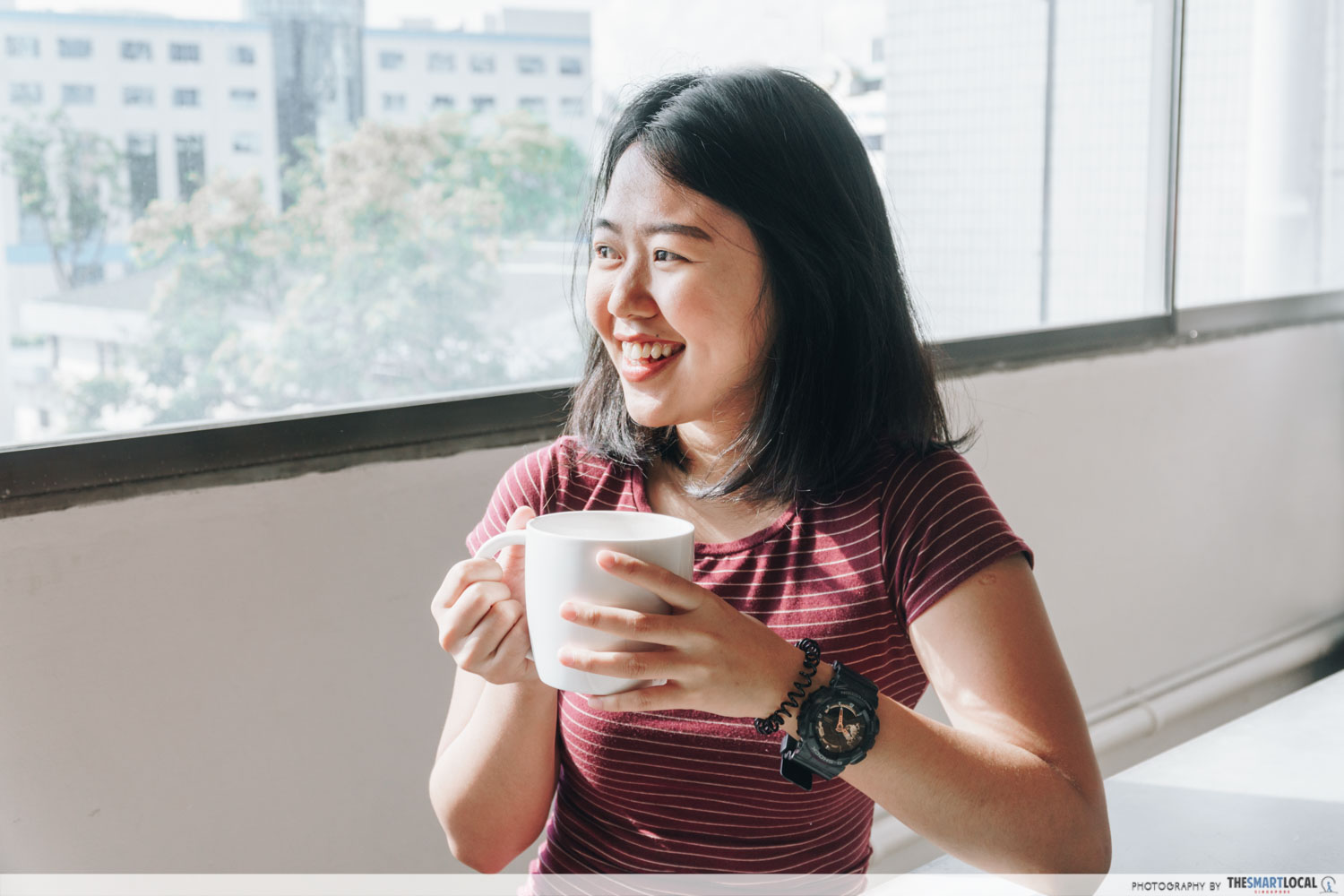
There was minimal downtime for Elaine’s Infini treatment. She experienced swelling and redness for about half an hour after, but her skin appeared normal otherwise. On the other hand, her Pico MLA and Secret RF treatments left her with about 5-7 days of more obvious redness, though there was no post-treatment pain.
Since then Elaine’s skin has started to appear smoother, and her acne scars are now less obvious. Her skin will continue to heal and regenerate collagen over the next few months.
Acne scar treatments at The Clifford Clinic
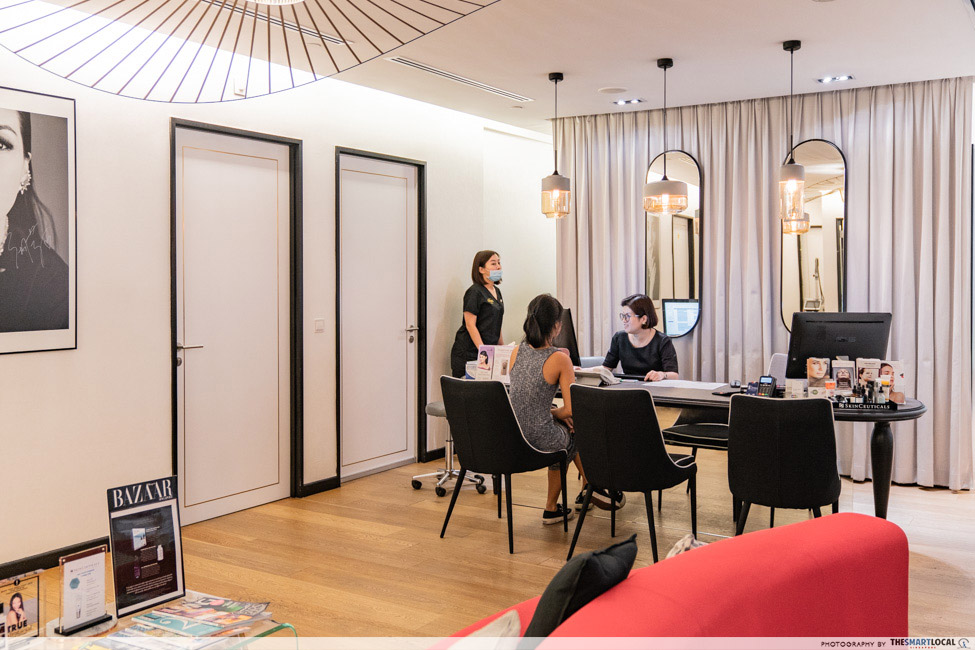
Acne scar treatments aren’t a one-size-fits-all thing and treatments vary according to individual needs. But with the help of staff at The Clifford Clinic, Elaine managed to find a treatment that met her needs.
The clinic offers a myriad of acne scar treatments that include these 5 common ones. And being a non-surgical aesthetic medical clinic, they also offer other services, from body sculpting to face lifting, as well as hair transplants and packages for brides-to-be.
So if you’ve got acne scars to battle along with other aesthetic concerns, head on over for a consultation to find a suitable solution.
Find out more about acne scar removal treatments at The Clifford Clinic
Address: 24 Raffles Place, #01-03 Clifford Centre, Singapore 048621
Opening hours: Mon-Sat 10AM-8PM (Closed Sundays)
Telephone: 6532 2400
Website
This post was brought to you by The Clifford Clinic.
Photography by Dexter Looi & Sharlene Lau.